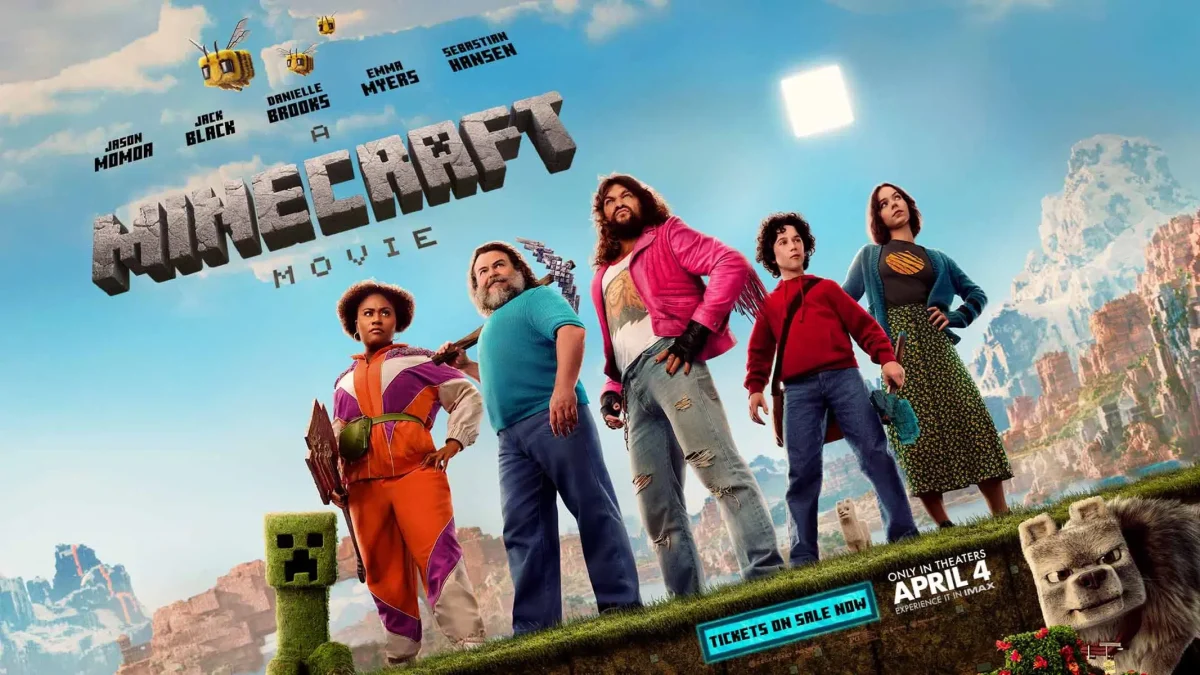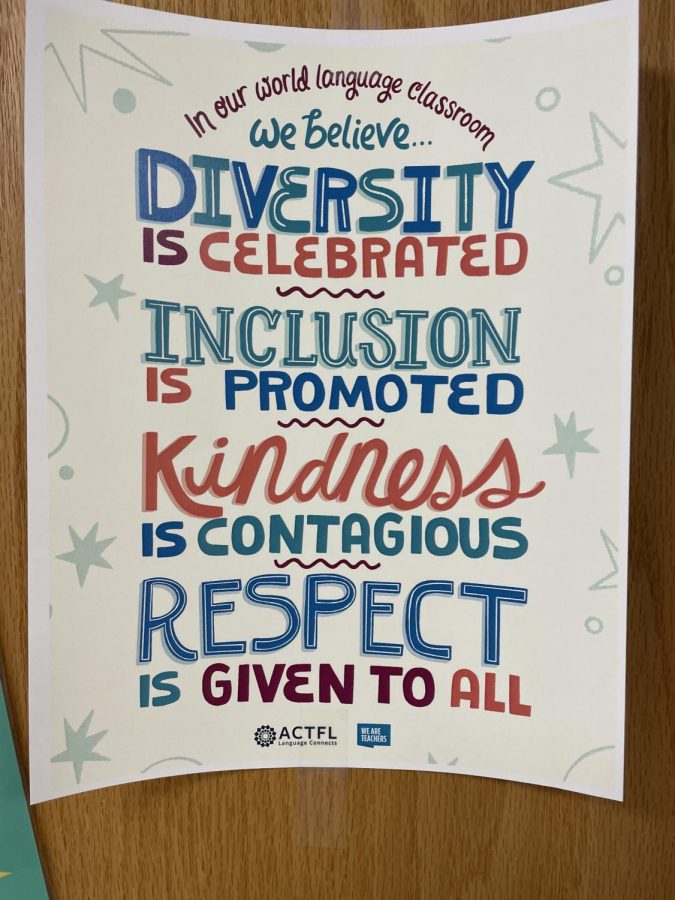Future of BSM: Social Justice
Posters in the world language hallway show BSM’s focus on social justice.
As a Catholic school, social justice is an integral part of BSM’s mission to “contribute meaningfully to a global society.” Catholic social teaching revolves around the rights and responsibilities to the most vulnerable, rights of workers, and solidarity.
BSM’s focus on social justice reflects a larger push across the Catholic Church. Pope Francis specifically is known for his advocacy of social justice related-issues and Catholic social teachings.
“Pope Francis has a much deeper understanding of the importance of social justice. When we incorporate social justice, we’re really doing what Jesus instructed us to do,” Campus Minister Mike Jeremiah said.
Dennis Draughn, director of Equity, Inclusion, and Belonging, hopes that social justice in the future will include concrete ways to fulfill this mission. “My long term vision is that we collectively come together and brainstorm ideas that are supportive of our community. Right, so that we can go out and do specific service to marginalized communities and communities that are needed,” Draughn said.
Draughn hopes that this concrete action will be student-led. “Whatever that looks like from a community standpoint, and from our standpoint, that’s yet to be seen, but it’s more through the eyes into the vision of students who always lead the way historically,” Draughn said.
Some students have already initiated this action. Last year, juniors Francesa Lichtenberger and Jillian Petty started Red Knights for Social Justice, a student club that educates their peers about various topics, ranging from breast cancer awareness to Black history. The group focuses on a different social justice issue (or two) each month and brings in guest speakers to talk about their experiences.
“We try to get guest speakers if we can, to talk about the topic from firsthand experiences. We like to talk about marginalized groups and we’re not a part of every single one, so it’s nice to have first hand accounts,” Petty said.
Although they hope to make change with this group and other student-led initiatives, incorporating social justice directly into the curriculum would allow its message to reach a broader audience. In a survey conducted by the Knight Errant, 58% of 70 student respondents expressed interest in a social justice course.
“I know the Junior High has a global social justice class. You take it your eighth grade year, and we could definitely hold a class like that for theology credit,” Petty said.
Instead of a class solely devoted to social justice, some students favor incorporating it into traditional subjects. This year, BSM added a social justice Algebra II class to its curriculum, taught by BSM math teacher John Groess. Instead of tests, students use the math they’ve learned to solve real world problems and help marginalized communities. At the end of each unit, Groess assigns a project using material from the chapter.
“So far this year we’ve talked about climate change, and ice thawing data from Alaska, and they’re currently doing a project on the median housing cost and the minimum wage in Minneapolis and St. Paul,” Groess said.
If the social justice Algebra II class is well-received, Groess hopes that other departments and math classes could adopt a similar approach. If all departments had social justice classes, it could even be a school requirement.
“We can do something similar for other levels [of math]…I would hope other departments may think of ways to integrate that. I think it would be really cool if as a school we had social justice requirements. Instead of it being a certain course, it’s you have to take a course in some subject that [includes] social justice,” Groess said.
The English department also ran a social justice course this year. Anna Overbo teaches Social Justice and the Written Word, an English course for juniors and seniors. Students both interpret works about social justice by other authors and write their own pieces. The students are covering topics from American independence to womens’ rights, the legacy of slavery, and homophobia.
“[We are] starting with the inspiration of people who have been using the written word, and did use the written word to make changes into who we are today and then continuing that legacy,” Overbo said.
Social justice is also a part of the theology curriculum. Andretta Hanson teaches Discipleship in Society, a semester-long requirement for juniors. The juniors work to bring social justice to local communities.
“Social justice is incorporated in Discipleship In Society class within the practicum hours that the students will fulfill. They are taught to carry out corporal and spiritual works of mercy to help the marginalized. This in itself is a small but meaningful and essential step towards the stages of social justice,” Hanson said in an email interview.
Regardless of whether social justice is implemented into the curriculum or student led, it is a key part of Catholic education. “As Catholics, we strive to create and live in a just society. The Social Teachings of the Church give us a blueprint to do that,” Theology teacher Becca Meagher said in an email interview.




































![Teacher Lore: Mr. Hillman [Podcast]](https://bsmknighterrant.org/wp-content/uploads/2025/03/teacherlorelogo-1200x685.png)






